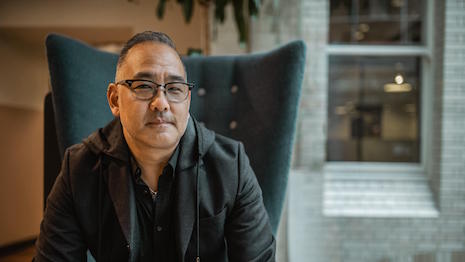By Curtis Nishijima
The luxury landscape is changing. We are seeing an increased convergence between luxury marketers and travel brands, as both aim to increase their brand awareness and use the appeal of experiences to attract an affluent and engaged audience.
Experiences have become the status symbols that goods used to be, and with the global luxury travel market expected to garner $1.15 trillion by 2022, it is imperative to recognize the business importance of using travel data to understand the modern spending habits of the elite travel luxury consumer.
In 2018, we saw luxury conglomerate LVMH acquire Belmond and Aston Martin Lagonda partner with Waldorf Astoria Hotels & Resorts to present hotel guests with a variety of Aston Martin’s latest models to sample along carefully tailored routes.
Both of these partnerships will inevitably create “Instagrammable” moments that will inspire other luxury travelers to invest in these experiences and allow travel data for this lucrative demographic to be collected.
As many travel purchases take place online, there is a huge amount of data available about these travel buys and the consumer.
Travel bookings online are only set to rise, with revenue expected to show an annual growth rate (2019-2023) of 6.2 percent, resulting in a market volume of $539.3 million by 2023 – making it easy for travel marketers to scale up their target audience using this vast amount of online travel data.
Earlier this year, the Luxury Institute surveyed 3,926 affluent consumers worldwide revealing that leisure travel will see the steepest increase in spend.
EyeforTravel’s “The Global Luxury Travel Consumer” report shows that the luxury consumer’s budget is $5,365 per holiday.
There is a lucrative opportunity for marketers to target this audience, but they must ensure personalized opportunities are delivered.
After all, personalization is something luxury audiences are understandably coming to expect as standard, so it should not be any different in luxury travel. It allows everyone to feel unique and valued, which can help with brand loyalty.
How can brands react to this?
Fortunately, tech is democratizing personalization – meaning brands can make themselves relevant to specific audiences and target them appropriately with luxury travel experiences.
We have used our travel data to identify four personas in the luxury travel market and understand the nuances between them:
The Super Elite
Will spend around $9,000 on travel in a 30-day period, with an average daily hotel rate of $1,200. They may travel to Baselworld for four days, fly in first class to Switzerland twice in June, have two elite loyalty statuses – spending around $15,000 on a carrier – on a leading airline and luxury hotel.
Based on these attributes, luxury brands will know that consumers with this persona will have an interest in luxury watches, so can target them with luxury trips to Aspen Snowmass, following its partnership with Hublot.
Modern Mover
Travel in first class via upgrade and will look to attend well-known luxury events such as the Cannes Film Festival. This digital-first persona is likely to spend $4,600 on travel in a 45-day period, with an average daily hotel rate of $900.
It is also expected that they will have four elite loyalty statuses and rent high-end cars.
This emerging markets profile will look for luxury experiences that they can share with the digital world.
After identifying a consumer as this persona, brand marketers for a high-end show such as Monaco Yacht Week will be able to serve personalized experiences – for example, VIP parties – to this niche and relevant audience.
Business Road Warrior
Travel in business class to major European business hubs at least three times a month. They will spend around $3,000 of company money on travel in a 30-day period, averaging a daily hotel rate of $600. They will be mindful of budgets as it is coming through their company, so are expected to shop around for corporate rate codes, take taxis and have airport lounge access.
It is clear that this persona bases their decisions on their business life without compromising their own personal budgets, so brand marketers from a high-end airline such as Emirates could use travel data to identify this persona and target them with personalized airport lounge experiences including the Emirates' Moët & Chandon Champagne bar in Dubai.
Premium Economist
Will travel in premium economy or exit row seats. They will have paid for meals, baggage and Wi-Fi ahead of time and prefer cost-efficient ground transportation such as rail and Uber. They will spend $1,000 of their own money on travel in a 60-day period and have an average daily hotel rate of $400.
This persona has not yet reached business-class level yet, but aspires to move up the scale, so there will be willingness to “splurge” or treat themselves when travelling.
This creates a wealth of opportunities for marketers to use their data to increase motivation on how to advertise room rates for cool hotels such as the Soho Hotel or the Hoxton in London.
THE CONVERGENCE of luxury brands and travel will show no sign of slowing down as both parties realize the benefits of working in unison.
To truly reap the rewards, it is essential that marketers understand how to effectively use data to reach valuable consumers in the luxury travel world.
Through using the insights garnered by travel, luxury retailers can create highly personalized campaigns that truly engage their target audiences and build special experiences for these unique customers.
The differences in luxury travel are niche, but illuminate interesting behavioral quirks that savvy marketers can use to personalize marketing campaigns for these individuals.
Curtis Nishijima is managing director for Europe Middle East and Africa at Adara, London. Reach him at [email protected].
{"ct":"q3QgdLi38ltYjbVKxnV+eDhNRMPYsZ7FTAlu8DOXOgCcvoDoy4VHfzx\/ehwhs1dFxzreIBSyJK2WiICmC2dbos3Cj78bOTRLRWQW92r9Z+Vn8Q7HUOBtVsX1+5xBV9u4NPliowJR5zVRu3xb2vCaJXJS0JouReLwk57AVmYLnLHl8rqJ\/Ej7yrYDF\/4O\/XCvZbl4B24iFwIEKnA0BrQmtgEq8pFjCoM86aEVicmotLlUet0PYBJHSiR4m9VZnTqrwEOZ3GhiCdCnD0IBuWqpVmnn7Yi1i1CLJbQ4h0YZdcodRsk3XpIP4Htci2\/uRJkcPcF+rsza3r7apH8HD0N4sQz\/vVZTVshSOsazjkOXBUfXqTV1JrEny7mAlBiJmZIfBkseEXgghgMFr5z9d5JtvLN7pGOA0FLxQWdY9z55rSGVmy1P8\/1aEERYGcu8RbPn\/922YV6ZObkjfOQWicAd3Twxddhy6iRblBXj+dVhnqOHZ1Cfs9kPmaRgNQ9\/VzX1ItWJ6VuQMXjb4e6jDgUO5iLbQEzwk\/SIlmgmsDnsn\/90GWv5xsTFH5Y27Pj\/y+hStO7FCEZH+FY0vLk\/fNRZw\/F9JWqT+Pvx0j49GfkRXDwjvOYUo40smgYlcrsX9kh3yU99jepp1RgY4e+7WeQY7+uED3xXAZHVf\/\/tLfk0KaB563M3INMkIjPJzkk\/AANLiXzC93ZCERmHiqGRpkwS3JhIxsLQlNcgiNp0202dPOKT7mmSssCmBJlHfZFrbS8+X1ZnwZRhajDMIjvWeZc1gHUUidau6HGE9FUXz4xiHF8A3coP4Wx8ByZKRHDYNt1KEk0JpThOo9Ij30uKSDcdzx7OjRjSGDCIasvgZ8LfwCNuxYXs0JKhLsnJxxgmlaGSetj02Q0SS9GF01fmkKppSuEZe0HP2ZWSJIflvpeWQzpH8ff+NkdZ9lHMjfFW7FD14WtF2nB+EKrNJCPz0IwvcRW+bbTdbss40q01ZJGpa3aHnqeBz4H3V+VnLDv6RQ2TrPy140jWNKNyonuxtbLI5vnw4LzSrZOPGyquOtnmFPIyOOIu+FlXDL3WrPY9OHW9t\/DQ1x8OUjlV93cYNzqQUjSELSSP0Q8YtsbThLtd5CBRvRUs\/8ODmLRP+pWJSBTSGLiFoL3eP9y0FC2xXZufVyf+mdPN9JdP4NVdRKT1gj8JRMYmtyZXIUOW6f2E00R2F4TDpDrPzOakGEVsHxuEwwUifsoAeHI2GhK\/VqkZp1c33PKd7jNEyg5oMKGMaYBg+vFqfT7IinTV12uNsRIzfwp7JkVsAAPMSNooscBOohSQJGGMW2Ks+7a5e7LKksen+y5Okwe7TfbfsoYZDNySy0pG3PfvjgBtqdaZazzrefRc5vkQg7QR4n6y4IilbHp5der2YvXLfNT8FVkuO0BnZD1oTjFXOltv94EJR5GJ6QYlTAtd73XSwLX+\/qQaV9Q685KtB3dO3FsBR\/s2zjghBKzaggsfEf\/r\/VGk5bC6wTm1JAzMCOGKYU\/Pd6o1a5ZdsQnjcIlOLbuztUiGMa2NEVtZ1foPnTad7Wd3dFjm\/9KR4AkmrzgM4K6vSrt7zkESsl1KhaZQgUW3L1L6YJq\/wzO1RrpmjgHqJe9Y+wpDuRP81dxFxpUF6XIe0eJ5R\/FI1JRh3Zh+a4f5rdd7p3zSZlO9mBLFBpNr65Qi9gB34Hxi9llCVq31Kwny\/2x5SeKIeZTkHSgCL6pWCYMaIjpQUFFlTU8lJmjCi\/CC8\/PyjKlcMmlCm7kD6urvtK9YxtAjtIvVODGDI6oBD74BevDgTXXEGAGTsA0ReMMgZMA9WTOubPmOpcyrw1yhTXnZsBTryuqPwVhWcjX8l032Pmw7+8MCCbr8pruXEI\/M4I7IhIXByzkPhTqQG9nSv4aG6bBiqkzq3KGkSjJpWlEbrVkZjVHbw9n8rvzGvnPSwZXV2UteZFlP9kofnu0Su6YEztaX6m4Uj3XPk5sgu3aOW\/oT188bUt+Oqcw1MJ6Kg5w7oJ6dvVt5FKH2hU6xvcTjcnvGc88SzU3bDKoOFH8ua4q4\/YXLn\/58pIBPbNXa39m4wWWNafRgU\/71yX9sruE572U76FcOOORKIZ70uJ+tQPcRxvrrKeDGh9b2y8xFV8hZ4LyB6p4AH8Nr+nefoLgv3CTYDTpR9MrtsR+IM8iydnaPvDVE5VKk5zre9GirCdCtCvjdtKgMbhcowBsncM6mpWcgkxIyCHUmuhyOpSiAY46ZBItt3WVwUEVrt9eTY8PP\/9wfMc2u9Uk4F7AN1k6Y+x5H2VxfqnaL2bB4218UZWf4UgU2vQaSpt9wAP7ekcEvSEeMx\/OuYp2hf0MNPAtZDuBo\/bNwnWU8o2JYTsOnT+lprgXlEnFQaTJzvkRcgTOaJ6FuldRfa5bPT\/BUDkb7KF6Qj6cAOkQR5Vh3qMdrgcLCJEvD8YlMMYFYMJo8n7ZX8ogVy30SfDN9PYZOPHzs8gpf9YQJGFV5JVC+r7zLqnveg0ArZ0bKbxsivx\/MhT41oeQcPjlUrj9yQQy4+RZfBnfiHpjNK1pQxLOExeGO7sdzezQHxT8L3X2LxeD5WlN4S0iAbAXrfCmpE3FB0HvAkk7QI5207j8DqfzeuJcsdiYQquvmSxseg2Aoz7owNbUKnFC1v9T+PJ90NCEHr\/JKFvvScjyT5QlNCrdJPGW0E\/7BKhrJWNAm+hExLuOt\/tkbgMY6kIKoDV6THpFx7pK9zMv765b0Ml3pN0mO2EMZdshZOkEGF1IQuzuHL\/EWe0\/t0zxEOfdku5UWZqq+SB8jRIQv5Miyyr42XCLsP5lbDhSprzwPZ42YcOGCV3Moc92jK96Wh6L93vIxUcS0t\/6Tq1lGFOG2c8FpW3Pw1RwrIfPp5gURx1M\/Kwj4uSe60KleZB\/5zWbXwc92cLND+PG3ggCSdSKFnwJLaC71uaYjXAeniKdNPbZP61yEsyyCR6g\/T74csF1xrBN7Ng2nqLnYdr3qdXH3C3cYihsyVnHyE9trwb+ywerl5+s+T8bNAE6+hJIMizdyu7lTHuSGlALyykPhmtACI9XnCQXH4aj5YKrS+9xpsmuY+WLV2sYjgDwAZawZeLWL\/wHtyZlGAPVkpME4OPVBtbLq9gooquzZZ0gyRXRjFzlQNQnj3X1sSvDvFoWMFfNfE3L6tRlWv71PWMd\/7S6y\/2UqGROHxq7qLa7i2IXpj0Xl40z9Dhg5FcJd+lIFyv8nWeeKmbhh1sWhNm5Rcy\/768lE4aug6ub2etKdkWniOshjRe\/pyAT43jZ3lcNs5XTZ3bVLyixxgxskv6+HJK9C2+x59M0z9afhD1SCUWTXd96RMH3wAlgVuKu4xMAdSsQSw0wgYs9pDdGNjMn4LShLS8BMNrIbA6gX\/CNd609WyiNQ6Hnp2XUd8YNnqF+Ed0ycROCrQiBJ6thCgl51OeD4fCI8hTzkdGABoEguIrfEZbxhL4r07VqC4g8gTTy3zJcwTkQaJGaHVlMFbIOC7SYibtgwD3uTfNp5cv332Hcqvw+CbVn6D1oaRxdyT8Qj+\/N8wqMgenJkduwKbOG1KyF2HPE4JsmDn8UcPTkANMeoDTRVfzYLOEWe01\/q2t99A2fBAtOd1BVyZAf7LTVAaMtv2wMTY4a3Awm069Ypait\/6LJM6ijrR4c8JxjoupSpAh6cf2NmvSTIyANwIz7bjJa1nyUtG8XXxdlHUFKhZh\/2uyGlNWz6cK5fdV4sSZsxvlYBWpgBJ1f6MpqVardVNmV8fWOPnq+bPqgCsBJ1S5TdsXBbQsFA3M7TBGVhpg6yVwOOQf5RQtq80BmlhzhN76TCdEhxTi5P4HFqYRwJ6fMLI0pS5b9UReeHT5fV04y1ar3o+VK2Z\/\/RfMKu+joVony3dcyn2wKZhepFCVtL5RBJBMaY4X3JL8RBnkrckUtIK8+6Nbb61Ky6oDFSNMxdf6vr3+RJ55KMfEa5o9UVK1qYDTBs4irtmlKlk\/KecbrkBjp96Jho7Tn43NiPkC67vVyO0F0Iw4+iOwj7s\/fAcXeg6R4MC7dsBihEPZKDrOLXNVUMCzyu1t59XCpgyTJBJtsofPt5Z+Zsq9N5NYHvFAOyYKIKARogEp588uIRuDV\/FLgA+iBQN\/D6pa1Vf9xyBqcNx\/UCQ8yUTFylNvKI8ugTXxgGwWSZSQ\/uigw4z7fDNocQRCSaaSck7FS1MYdumJcwTzbWqYA7a5x5OQL72Y+RXHraiCphpD6IbaJOAgym7ZCZppnAnD28koKOgFigEYs1uMZ0QhGtTRYCEeB+OCNQm6jH4i6Oq6UopcQhECAgHcqKD2ttcDXztj714IIFbzwcm65gA+uu5NUTIBWe0YMJI1qU9PbG53wDFEDPWKYcomiOXf9GN2aXghoiL4I+QmSfIGOHzcCD8jOPQrALcyH9Bj7IZpJNUUmG3A9I21dQKm5JCVyWRMkwjkUIY5Dg12EFxcZuj8ds+T3H3XUhH+19X\/uwxBAbpM3PykZWRYzVqK25zrfIQtzaW0+hoSQc\/EIvR7a2Lahr06SG\/4y5wcCfMPCN+3TYTaCQEMtHZFbYBcqdrOEHWqe1QdbF3pi9Fq3FIZuPdHxTbIZN\/LiuB862txby2CZtUSILPW\/DVn+nYNTVWWBZrkk9McGOqkkqafcdW6Df0IRnp2HmaqWCLkzrWJ9y8OdD59awZ+nZ0fzEQEfOCFylS+ayo01ksBaGVcYtxKa8Yf2tAhG2VsL3epQSgTBOzcHyYnTYbIf77AMvXa3aQAMYHNFE5TJvRstEwpJA6\/g81\/zz7VBXxSOx7nl67\/Xa8qqb8EN738D86Mi5xkXHQgTJ0\/M2sB4emVwvfvDrAHqsDLeUdTf+V\/jUVJe3pVl1XTid2RgLySFV+BmweL29w6AA0VyioYcPauyhMHK7kPUN0osYbu4QRiF77DvvLprrFcnz8vPeab6lpF3edC55VBwBA\/0SIKrbCREJfn5qoq1sIpj++9ldHXaMsuvXqxlmwo8+x4ZvwJPNaktf110HQbP+O6lA4rz5rPAXKp4rGxwUCC802EIU9RrHDdOyiRytOfKurW6E2f2Lfb4W1p4HuHj\/vmTf\/2V6ipMmSnB7iLFwzox\/5438LsT0cMQ87TLyUa\/KcOPyogG8l9Fq6KgGpN0ojAwz55662SvCxHytBuLkCQrOuYvWT0908JiWff2GBijw1IQeiSOfo5w0HkIOAWDQCe5sMloxb7MuZipNRfkWpDZRmHXBKYJzkYr2s6p\/+ER8ZdPUrRn4UlG3jNmz0NRVPoNf3yMiEVkFtmpNjb6jWcRrFiuwe3mU6QIHqehGNoAJYZrjj3y7ZiMrGAioGEhj5ApXjGYDLxacPwlGzbjPGolfvQieyd5xK9sSzi1EruD8gjs2+E1fkjtGz+1KNZP443AypbvnVXfxo2lC2rDeE0dLgRP3iGtNZUeiTYksp5ERlYvDwmBOhzM042sN9xvkMr9eD4PWLX9i\/pmzrf10Dg0IfTuq2Qirj7S2GnwQh35b7Q3dyPDe+Jf6BI9MjYfGZxY7dPXQaZWPs5sOSs\/Qyctj2RFzCGOmm6+Gx2iiX++oBY+VSwasuVge6yli2mjrbzao10BEDdQ9GV9UNQ4ajXEqNPzNHuzmzy8xbQb00alNQGHmrwVRsWrUKiXFqrekuykawnDuKtfQlZqDI5\/0qZME7pf5gimFA+meX\/yGhG3hkaLHhKr34hutHI+99eYxO4G9+DZZDgWUS17q29xuae7GoMrih7fHKcOQgyD3n5ombk3\/YgrfqbcoULozlbZ3+qj0ljFC0qlLs6f5OnlhyzrqS7f4iHys8Po+EGSFQzpKCWruiKQG4\/8NIhySXgKty+kzxWhEgosuyGGbvk9YsruYxuHw2UTAgm4baorpS5IHzUDMzKwVByMedcRCiCNSIiMPzY3hAgXI3p1LkUlhNZZJbv8C1VuieIM9vDosT3pWg+p2RP0v4GuJjpf38aBciKsq4RSu79Vk6KW7WFPO3RbVr\/oXS0b9ZUL8RkZ4SLzdx+0gJevhgIG49bCuGpzks3VM7ol\/7ZVsLn1gE9uTjJU1r\/MNJOwEQOnKCLaydvoSF3v7hv8O++1pwuhrYqbIcrj9VNtQ5F9IXBPXsoUfJUn+t+qPjoaZpuEtMwQdpkL\/D+FK5y\/ghHuiKlv8NQ90W5VNlfjpsdWCqIn+wDZl9\/hFmm1u3GdQIUphqIq3LDBxLWSqDmS9REqb9O1sAL7Ceiynfq2oIf7Vamqu1F4639UgdLhRAx0hfUHEBVhRZARVPsRU6f89acpJ0sky6wiziSZMjROyG0SPr07rUE5yAoOVLhtqDJs9JzlpRXJ2xT7GD77YhtO1Dd1VrfzsGFIYMkeV7Wl5wD5E7x1\/\/kUS+PMpFMFzcxsfg7i6ezADmajwncsDBS6RwKxGr6j5segbl7A\/0+zRLzRG34yvtalRyAxAAUuYmcOyu9HBa+OzpMj+mEJMBaje1bd9ZphlBdQP646if9qAaBiUpkhSqBHSOHQ9zuczOSZB+6l6k6aTXwm4BQtaAMxaj6GTsGUbfnQG3\/r+5xUpvnRT0GN7RLW\/OZ3gkf7YSUsAX1Zel093\/ilTN+6QEJE9BNmvuPiAqag7\/etZ24OEazCSd2ER8ApEyiOSy5mpLKZ2MHmoZFZKNYb8yWKfIZrhvOXds3PR3oyWQJcPKIad0WgZ3rd7DOR2aNCnYeC5M48+81Mws\/NDCXMOMD3Ey02IPiER9lryMLRGeIT+CYBPzKZiEVZ3z7AnfItFPOP0UH0HqvDq+4bs9ub5U+PsAzXzr8DDujeO3r8hit+P8c51HEk1ouYkPijf8JqZsUerPeGWZaqOOnu+su5b1EeVKLCsj6\/volN8W9N7UaVIo7K30335gr\/\/QYIQSaXGaV0MX\/SNaBisCsSLQMPQFkkK9tlCP5frxo0QFEqurMAAgbfEwmgb++ferJS+HMZgK++2TC\/5grRm2n6hoZr7yTYuWPASo+9ZxBb3btfDTPc+WdSKqS0g+6rA0IzdQPqWcmmQeuv2VyjN\/N8goHYN+EOpNVP0tVwfkHoJ4jxkaqcePFWMJrzKQAH2kp+fThg0+P5PG5ljx9C6f6CDWOLR4DY4orEz9m5WEtxGMDXSmmYbx\/e5AZJf0BKM5uag\/eeZIi7cH3TPW7YEEj5gzYINafUJbaKQCK81YnrEzPwvOkjOlOYTrdAA1wrPxUOzh\/2wlreIf1fRfr7dCnjrxOVtcr0WqjDyM72SU\/RuYkRtDv8xOY+x+0rcP+PZZ7XxNebPpMuJN2ffzuozqRf0+4T23Y\/WiKQ82UtVRuCbFqrVhlhck6HEKAvj8Wk9RTnqZlbBTsNxaRCQ2NGAYj\/6UZIAx9lCMk8ZRhxsAE8Cyc7L2LTEETX209k\/6iIJzgT10QhfZp73S2S2LcWKqI8rd3IlQkNfmI2PDkEY8Jh8bY6tleLc1E3zZRMvhL3s8raNbaxUmyEq7y4p1ZWMsBZJNwcuXu8Ev7V3OgD4xIw82PyhSFn\/0f\/qXZwQhShLHpqqDc2Jy25CD50aLd1POX6pR25H4\/JCm8EMZLLU\/7XJwY8hhzLiigcj5bSC12ZJn4QzHF9\/ga\/dSyjlKiQzfikMOlXCbjU0wCY8ajpzR8cIj2UYN1dP7wLbhZX7WPlFwlx0ebNMiifkijK6VLl4WsHsEF\/wf6kjYs\/bxrYo5uYdYkgUhnSvo24oce+Kco7Y0xMOpYmQwXvRazOKlnMIhzbvBrYuAbGEg3pW1Sl56MegGlkl+ls9SOs07UD4Vtbh9hJDCLi407ov1\/D1BxquYdDn0MJtkF+EIc4G4HQdFUv2M6Z8hc3vBZvscVqDgEMxfAMBW\/y6IIVXmD8eUuVGgLkRlzvt89ggCXZa4\/5oatt+qELWy5Sx20syzMS46cv9FoGsn1ycIKiQZDoyJ85GNtSIk3WdePy60zDPIAgAtB6b7peMVLPRZKIJkavzVvZGf5YAp1gRdTgkYcxgr+ESzM35UHrpOhs\/dI84EAfnUVdtKLFUuLwH1v3FocWOkK24+b9NKu\/CJzvbozcg3xyVGoUBG0RJCI4hEcwzrMO2++8WDFEVJhyD40hsRWCZR7ayZ6IBc+gAiym6u8r+5Gx1qHCwPMbRIM1f9v9EwMWfU6m2nbi5aBlRX\/sw2qy4PiII7IFstO59fR008jH\/p2lb5xZHL9mE3h71J8XBzjvrsWJwXQjLz8cRBrQNRxKlDIRDY9yCwN8uA6IerbFni\/e6Acv8NaaTz7RZqoWnNwdSVzdUgu2rdDGr1bA7r\/n3ufZ5qsChqauOVamuN0RdS4ESe9NeF36AQhDkhn2m4F2HozNb0AfRLjXswP\/oWNWliTi6Eaa0OD+pwzuE9CM3HPJu\/ZpAJWxtDESDLIj4oMcJpy421uIWRvt1fLWhbjjoZ7S0TagITFFU9hPFMeaYIm4Np8HKmU1zWXQcIWwJ4xj50YfoF9tafQ\/TNHN\/ne8nPfQO9RyO4NJdeVA9wTHND6EYI9A+fN7+60gBcdu6iaoRhMPPqEdHM+DO5ef+TdIFRfnacWYc4Ldijd7vCmjOivTGjZnSKKcn0IMv5DlpEix\/bApEJAYkhY501328Y1kVGs8PddNgFU3lgh7zZTxqFitwltohwbxn1DC3c7tBNJhKvSg8VRmLlvCMW5m\/dGWDXLhHhhXJW59IhP4yt+DoZRczeZXRP22BZilgGeyVYru456y3S\/tlB9nTLztfZBI3SdwBv9FTOZdJBHomNJXZYiDqpPL43ZZ15iYGWfcspD3WoimFjyMOGvsjXTXmMcjN\/UgT++xjk2CNeDoVMO0GgrcSYkpBT+xf5LMga9\/9jeBu7Q7RREPetw252nSyI0XymLfBwvGK36A23GCHf69w67Dwbb66fdgDeMdF6T7PoyfjtOPmHjG+0MFDgUi1SoDZ05DmyyR+LWIvVt1YPfjNUc83HbLAB\/4EIViZVfPEIaDoj8Wh7U7qGhmhY+SvKq5194ZP482Jd9ggvmShDBrH1Hsp\/ckKGzB5rci4ISl3cwWet85GzeUuuQsmXiyIgL3xRy3gpjegh1\/vKKH+ypM6SIXxfW4kJBibqlOFXUMyEVtINduD5yTzbAXyQlXJkKG1KlHIqxTnwfvhIXedpZbMxKML+7WWiQZ3lIb0GJw3yNq9Ur6ORZboX0JR7+I\/LcpHopjVIV2HLT4UooHjwtBJl+5Yu0Nj1VWBT+wL7a5rjm7ndmMNoebMZ2Con4c5AvKZmmLddgh\/czkHdbQnHR446k+q0nZnP8gKbJ+kkQutQLul8R089m1eC3R0gDhyb3\/NHoxtgqSWdw5vuxcdB8oFEXA9NlHL7KjNTLDOMRTcIT\/E5jVAyB2n5wlUniFEqHoa7ToK5c2sBUBF27EZVkxGur58+mKcTwExTBuZQhC+REHkXcisDohHEci3HrOxNkkh43En1+iTEGiotC3hiyPWy4gDpC0qlGQyayt6DUL48u8aETsj\/4FD19itOaggz5GcxldHXQgHRYgXPzFa0Jv\/PTQL7WbdsWbxrXiROmAGlUsnFY8ElfZtpwB29pKnpgaFXu95ylR3a6qcbStPiRH+7vhl5Zh6Y5hu5nBWClfMuQNq7WXavyKBw7+qal81LF6pbYD7oyvxt7QUVUs1VJK4TnO+BAn1qJUsAexf1HaE9pON+Leprjlmg\/IOJ6XBaB2uLPotSqk208Abxxmw4vF6gzk3CX+OB73M7oLRjzQRCnsptFaUG8053d2ei2l+z6tbEmr\/vlR65sDSe8h5Pal3VMPXVlsF\/985qeV6NWe16VOL8aXOvvFGydYAzANF9qKkuxczvN9QRVhQzb3ogL6JUg==","iv":"ba06b676af3dfd05b92b0797afc48089","s":"72c6547dfd45d778"}

 Curtis Nishijima is managing director for Europe Middle East and Africa at Adara
Curtis Nishijima is managing director for Europe Middle East and Africa at Adara